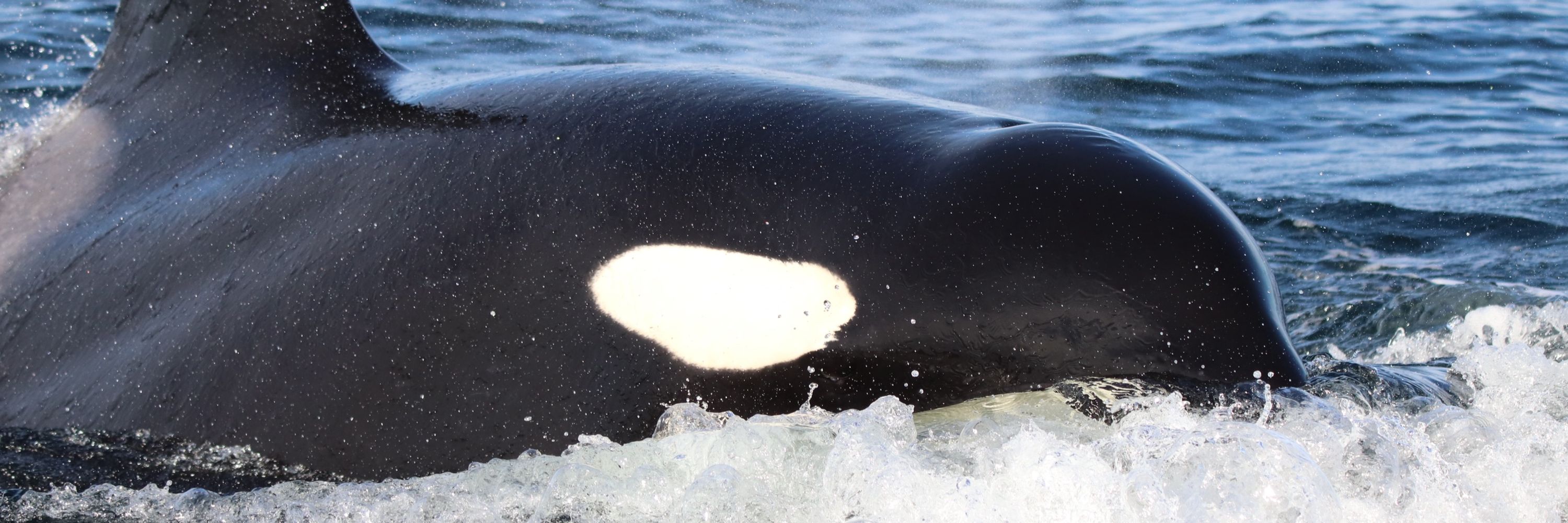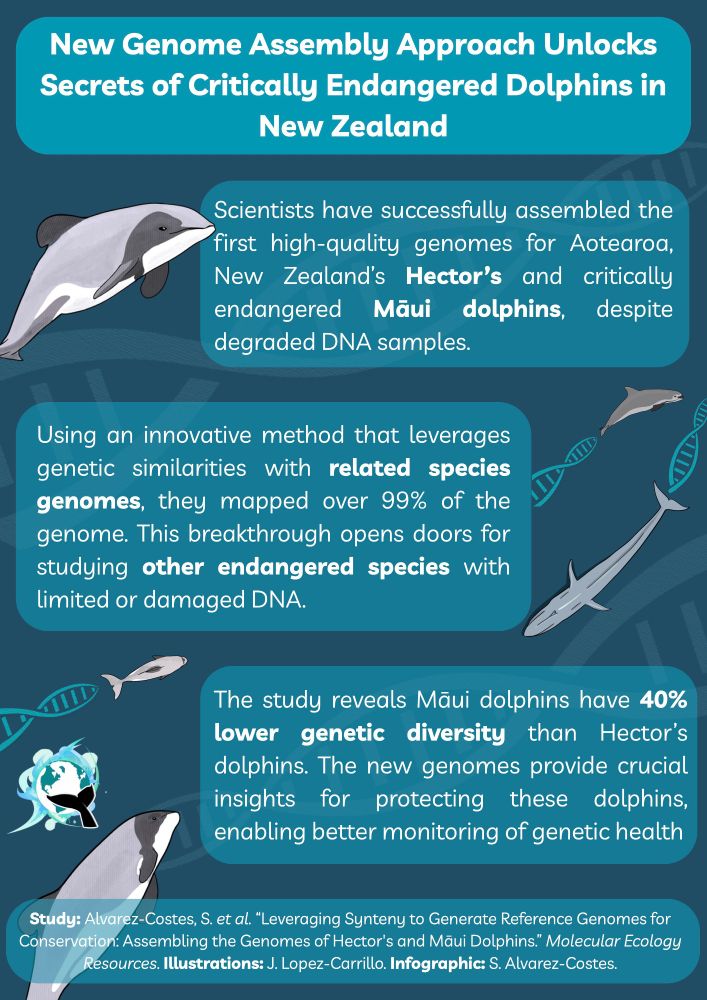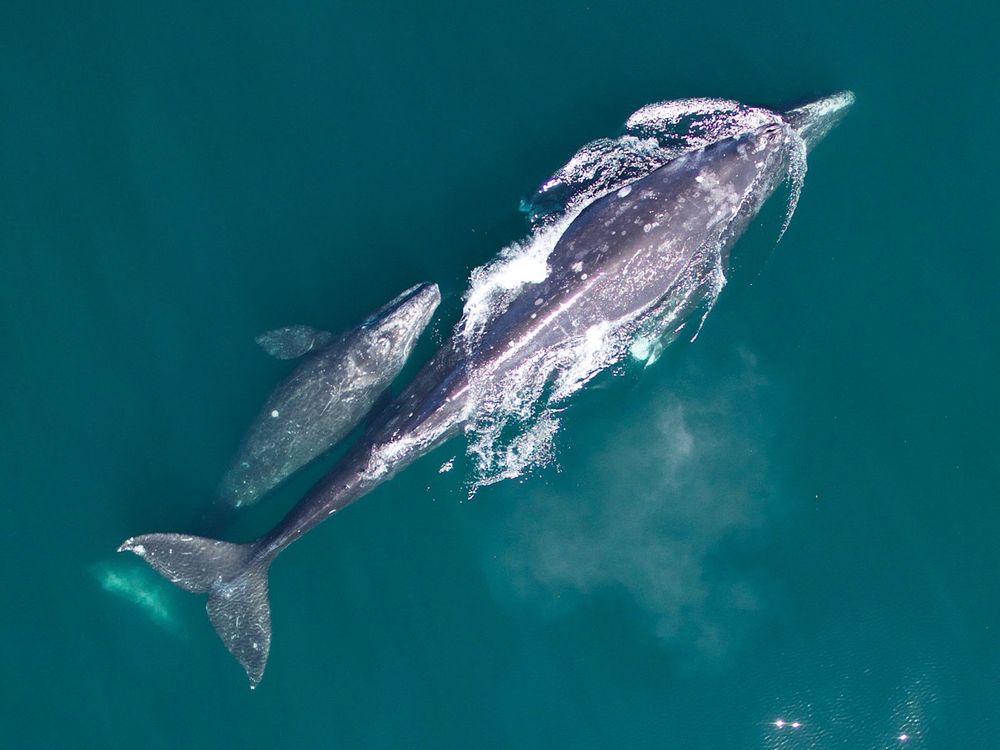
Whale Scientists
@whalescientists.bsky.social
Whale Scientists is a blog created by early-career researchers to share knowledge about whales and dolphins. Our website aims to be a platform where people from all backgrounds can learn a thing or two about marine mammals.
Great work Lucas Bernier on uncovering the lives of one of the ocean’s least-studied dolphins! We love featuring cool research by early-career scientists, and this was a beautiful opportunity to take a virtual trip to the Caribbean. whalescientists.com/frasers-dolp...

Fraser’s dolphins in the Caribbean: Social island hoppers
Fraser's dolphins have found a stronghold in the island chain stretching from Grenada to Anguilla, and island hop along the Lesser Antilles.
whalescientists.com
October 20, 2025 at 4:42 PM
Great work Lucas Bernier on uncovering the lives of one of the ocean’s least-studied dolphins! We love featuring cool research by early-career scientists, and this was a beautiful opportunity to take a virtual trip to the Caribbean. whalescientists.com/frasers-dolp...
Wanna read more? whalescientists.com/can-whales-s... Story by Eline Van Aalderink, Infographic/illustrations by @anaisremili.bsky.social

Can Whales Smell? The Surprising World of Cetacean Olfaction
Though whales evolved from land mammals with good noses, their sense of smell took different paths.
whalescientists.com
June 11, 2025 at 4:57 PM
Wanna read more? whalescientists.com/can-whales-s... Story by Eline Van Aalderink, Infographic/illustrations by @anaisremili.bsky.social
The recap of the study by Sebastian Alvarez-Costes on his new study! Super fascinating and inspiring work 🐬✨

April 7, 2025 at 9:21 PM
The recap of the study by Sebastian Alvarez-Costes on his new study! Super fascinating and inspiring work 🐬✨
We recap the whole study here: whalescientists.com/the-great-wh...

The Great Whale Conveyor Belt: Earth's Largest Mammals Keep Oceans Thriving
Large whales operate what scientists have called “the Great Whale Conveyor Belt,” the largest long-distance nutrient transport on Earth.
whalescientists.com
March 10, 2025 at 4:35 PM
We recap the whole study here: whalescientists.com/the-great-wh...
Thanks Heather 🥰
January 28, 2025 at 9:31 PM
Thanks Heather 🥰
Find Martin's recap on Whale Scientists: whalescientists.com/humpback-wha... @lbejder1971.bsky.social

January 28, 2025 at 5:21 PM
Find Martin's recap on Whale Scientists: whalescientists.com/humpback-wha... @lbejder1971.bsky.social
This is a tiny condensate so make sure to read the whole story (link in bio) and thank you to all these amazing ladies for their time and extremely valuable advice! @carissaandclimate.bsky.social whalescientists.com/whale-resear...

January 3, 2025 at 6:22 PM
This is a tiny condensate so make sure to read the whole story (link in bio) and thank you to all these amazing ladies for their time and extremely valuable advice! @carissaandclimate.bsky.social whalescientists.com/whale-resear...
To prove it, we asked six inspiring early-career women to share how they carved out their niche in marine mammal science, offering insight and inspiration on where a master’s degree can take you. @emmaluck22.bsky.social @intertidalkendy.bsky.social

January 3, 2025 at 6:22 PM
To prove it, we asked six inspiring early-career women to share how they carved out their niche in marine mammal science, offering insight and inspiration on where a master’s degree can take you. @emmaluck22.bsky.social @intertidalkendy.bsky.social
Read the whole story: whalescientists.com/drones-trans...

Eyes in the Sky: Drones Transform Sperm Whale Research
Drones are revolutionizing sperm whale research, capturing aerial images that reveal scars, and markers previously unseen from boats.
whalescientists.com
December 13, 2024 at 5:29 PM
Read the whole story: whalescientists.com/drones-trans...
Over seven years in the eastern North Atlantic, researchers used drones to identify 336 individual sperm whales by their unique scars, patterns, and skin marks!
December 13, 2024 at 5:29 PM
Over seven years in the eastern North Atlantic, researchers used drones to identify 336 individual sperm whales by their unique scars, patterns, and skin marks!
Thanks Lars!! 😇
November 29, 2024 at 3:24 AM
Thanks Lars!! 😇
This chemistry-based method lets scientists unlock secrets from stranded whales’ tissues, revealing their diets, habitats, and place in the food chain—all without direct observation. whalescientists.com/study-deep-d...

How To Study The Deepest Diving Whales? Use Chemistry!
Stable isotope analysis reveals the diets, habitats, and food chain position of elusive deep-diving whales without direct observation.
whalescientists.com
November 28, 2024 at 10:55 PM
This chemistry-based method lets scientists unlock secrets from stranded whales’ tissues, revealing their diets, habitats, and place in the food chain—all without direct observation. whalescientists.com/study-deep-d...

